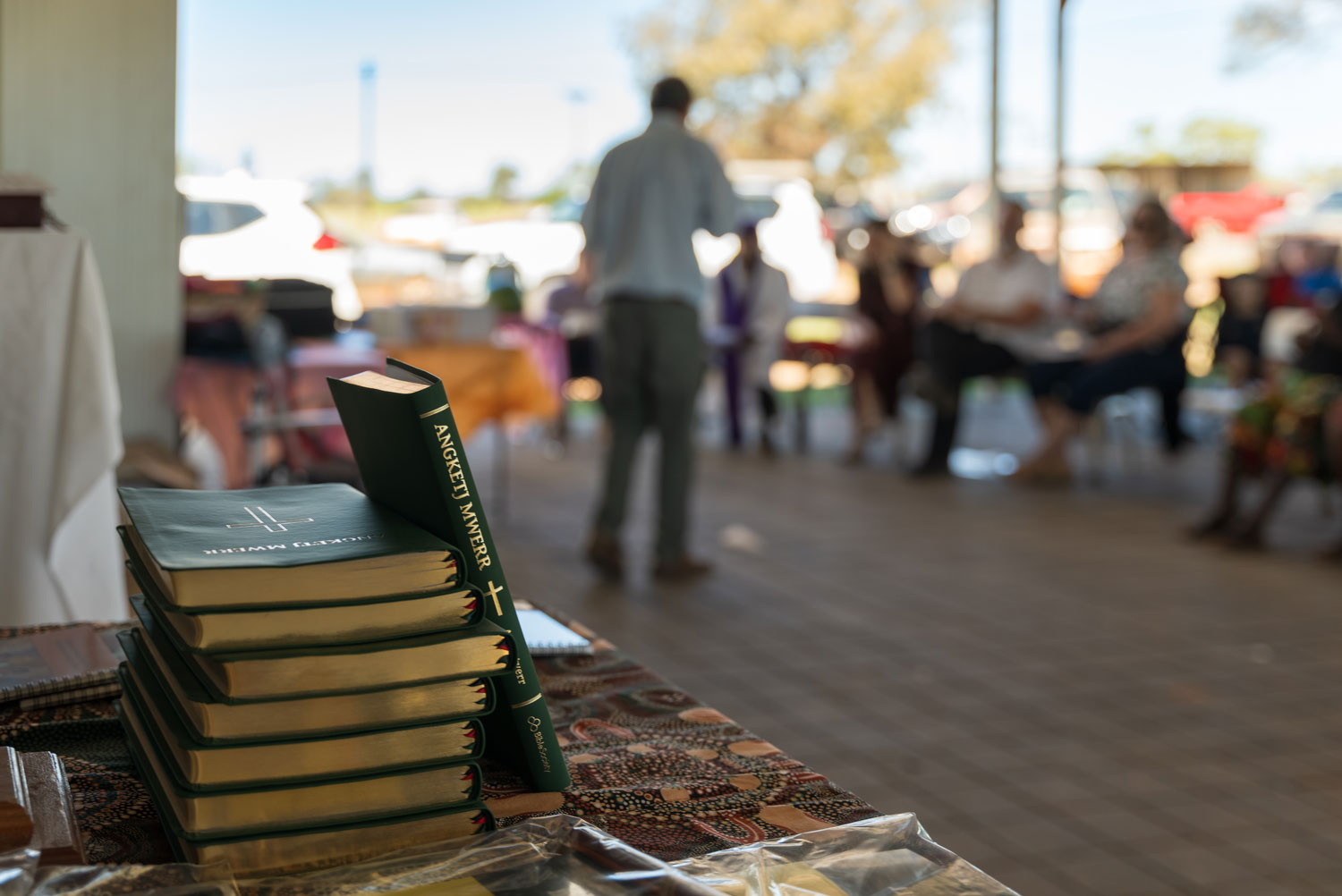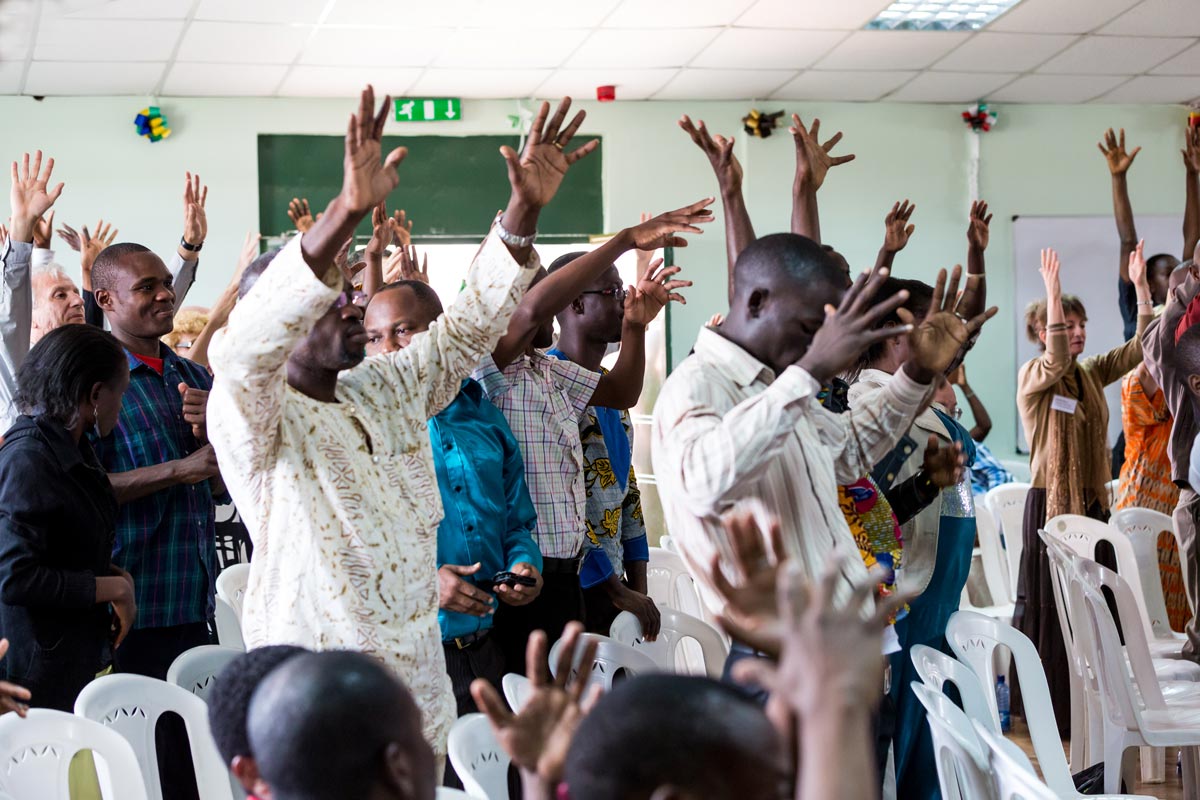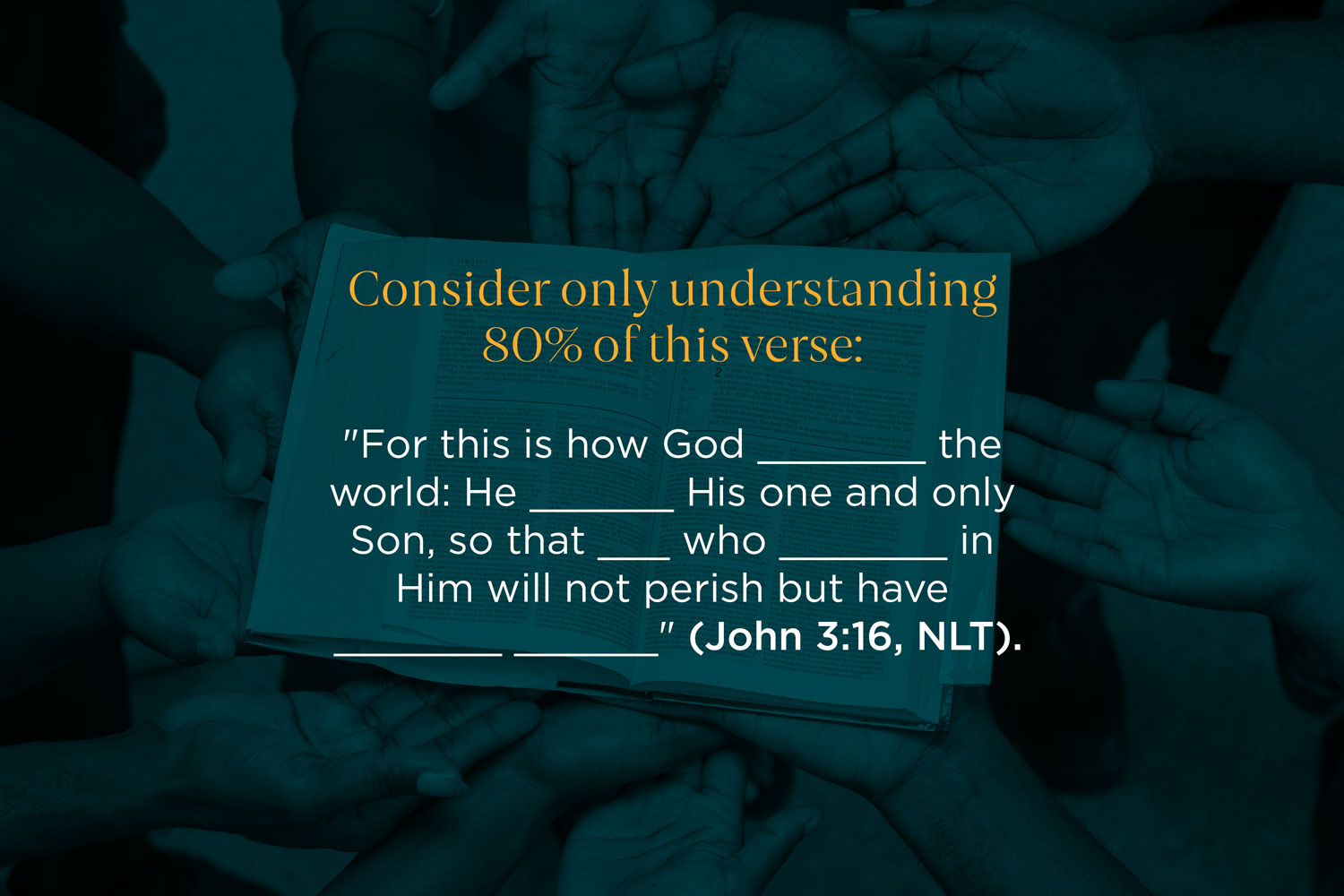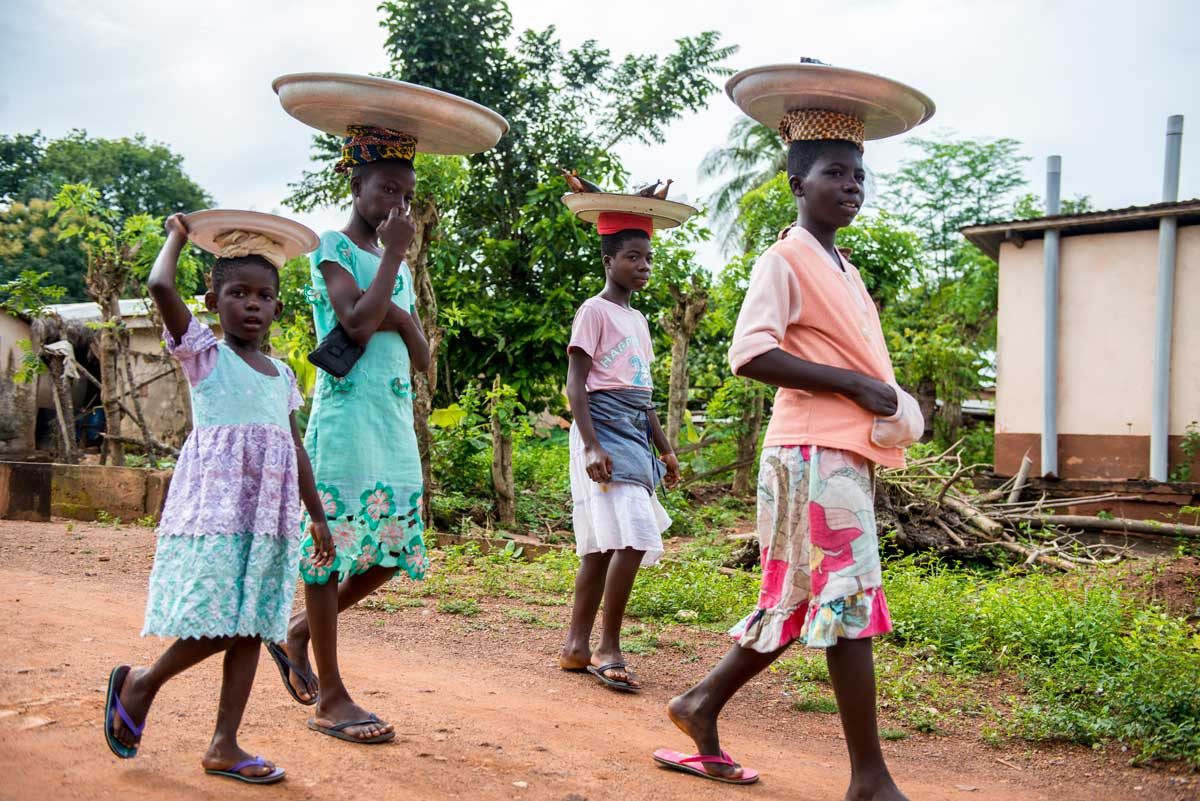Pentecost and the Gospel’s Power to Transcend Language and Culture
How Bible translation is fulfilling the Great Commission.

The Great Commission is more than a directive; it’s at the heart of the Christian faith. When Jesus said, “Therefore, go and make disciples of all nations” (Matthew 28:19, NLT), He wasn't just speaking to His immediate disciples but to all who would follow Him. This command transcends time and geography, calling every believer to participate in spreading the Good News.
But how can we effectively reach “all nations”? At Wycliffe Bible Translators, we value linguistic and cultural diversity — and we believe that God does too. A key example of this is Pentecost.

Pentecost: A Celebration of Diversity
Pentecost was a pivotal moment in the early Church. Jesus promised the coming of the Holy Spirit: “And I will ask the Father, and he will give you another Advocate, who will never leave you” (John 14:16, NLT). The word for “Advocate” in this passage refers to comforter, encourager and counselor. The Holy Spirit empowers and equips us to step into the calling of the Great Commission and make disciples of all nations.
In Acts 2, the Holy Spirit descended upon the apostles, enabling them to speak in “tongues.” People from different regions and languages heard the apostles, and the crowd declared: “… We all hear these people speaking in our own languages about the wonderful things God has done!” (Acts 2:11, NLT)
Pentecost reminds us that God's message is for everyone, regardless of language or culture. This miracle of language emphasizes why it’s important to communicate the gospel to people in a way that resonates with each individual — a language that they think in, dream in, pray in and identify with.
The Role of Language in Identity
Language is more than words — it's an essential part of who we are. Language influences our worldview, traditions and relationships. When people receive God's Word in a language they understand, it connects deeply and has potential for the Holy Spirit to transform their lives forever.
Have you ever been in a situation where you were the only one who didn’t speak the language? Maybe you traveled on a trip overseas, enjoying incredible food and culture.
But how did you feel when you tried to use and understand a language that wasn’t yours? Did you stumble through ordering dinner, get confused while asking for directions or struggle while trying to purchase your souvenirs?
Now imagine trying to understand the Bible in a language you only partially comprehend. How would you feel? Confused? Frustrated? Would you be able to understand the nuances of the words and passages? For many people around the world, this is a daily reality. They might grasp the general message of Scripture, but they’re missing the profound depth of God's love and promises because it’s not in a language that truly resonates with them.

Translating in Colombia
Missing words and language barriers can lead people to not connect with Scripture at best or, at worst, misunderstand key messages. Guillermo, a pastor in Colombia, was helping check the translation of the Book of Mark. When the checking team began work on the account of Jesus healing both Jairus’ daughter and the woman who had been bleeding for 12 years, Guillermo seemed troubled.
“I’ve been preaching the wrong thing!” he told a translator. “When I read this passage from my Spanish Bible, I didn’t understand the story correctly.”
From his understanding of the Spanish, Pastor Guillermo had previously taught that the daughter and the woman were the same person. But when he read the same verses in his language, Guillermo clearly understood. He could now preach confidently what he knew to be true.
“That’s why we need God’s Word in our own language!” Guillermo exclaimed.
If your first language is English, it might be easy to take for granted the wealth of Bible translations and spiritual growth resources you have available. From worship songs that resonate on a deeply personal level to devotionals and sermons that draw from multiple Bible versions, access to Scripture might not even be something you think about.
Yet for millions of people around the world, their access is still limited or nonexistent. But it doesn’t have to be this way and today, communities are actively working to change this!
Pentecost and Bible Translation: Bridging the Gap
From the beginning, Bible translation has been central to sharing the gospel. The original texts of the Bible were written in Hebrew, Greek and Aramaic — languages that made sense to the people who first received God’s Word.
But as the gospel spread across regions, translation became essential to fulfilling the Great Commission, ensuring that people from all nations could encounter the truth of Scripture in a way they could clearly understand. Just as the Bible was translated into English making it accessible to people like you today’s translation efforts continue to break down language barriers worldwide.
Pentecost was a divine example of how God wants to communicate His message to people in a format and language that resonates with them. Bible translation as well as the Holy Spirit’s work at Pentecost is a reminder to us all that God values different cultures and languages. Bible translation isn’t just about helping preserve different languages; it’s about making the gospel accessible in a way that connects deeply with people and makes a difference in their everyday lives.
At Wycliffe Bible Translators, we partner with like-minded and churches worldwide and God is at work through this collaboration, transforming individual lives, families and even entire communities for His glory!
Restoring Relationships in Ghana
Prior to Bible translation beginning in the Siwu language of Ghana, two communities — the Akpafu and Lolobi — were separated with no intention of restoring relationship with each other. Despite the distance between villages, when the community began translating the New Testament into Siwu, they picked a translation committee chairman from Lolobi and a vice-chair from Akpafu.
Working as a team, they translated Scripture together — navigating slight idiosyncrasies in their specific dialects and assisting each other — eventually completing their translations and dedicating the New Testaments.
For years, the Lolobi and Akpafu were separated because of a disagreement no one from either community can recall. But their mutual desire for the Word of God in their language gave them a common purpose. When it seemed impossible, the Siwu people showed up — together — and celebrated Scripture in their language.
Bible translation will continue to be a vital part of sharing the gospel until every person has the chance to hear, read or see the message of Jesus in their language. It’s not just a logistical task — it’s a mission that reflects God’s desire to connect with every nation, people and language by drawing all people to Himself.

Your Role in Fulfilling the Great Commission
You don’t have to be a Bible translator or linguist to be able to help fulfill the Great Commission through the work of Bible translation today! As members of the global Church, we each have a part to play — using our time, talents, resources and skills to help bring the gospel to all people.
Here are some ideas for you to actively engage with the work God is doing around the world today:
- • Learn about cultures that are different from your own.
- While you might not have unlimited funds to be able to travel halfway around the world this week, that doesn’t mean you can’t find ways to engage with different cultures. In fact, you might not even have to leave your own city!
- Whether you’re visiting a cultural fair or learning how to cook with new ingredients, check out some fun and easy ways you can live cross-culturally in your own community.
- • Use your money to make an eternal impact.
- You can financially partner with missionaries who are serving in countries around the world to help make Scripture available in every language.
- Did you know that you can also become a monthly partner with Wycliffe? Through your monthly gifts, you'll share the Good News — God’s message of love — with millions of people who have never received it.
- • Engage in cross-cultural ministry.
- Look for opportunities to engage with people from diverse cultures in your own community. Whether through your church or a local outreach, cross-cultural engagement can happen right in your neighborhood.
- • Pray for God to continue to move in and through the global Church.
- God is at work in Bible translation in ways we’ve never seen before! Your prayers can help make an eternal difference in communities around the world today, bringing the gospel to more people.
United in Mission
Pentecost reminds us that the gospel transcends linguistic and cultural barriers: People from different regions and languages heard the message of Christ in a way they could understand (Acts 2), fulfilling the call to make disciples of all nations.
The same Holy Spirit is changing lives today. As we continue to share the gospel and embrace the Great Commission, let’s come together as the global Church to bring the life-changing message of Jesus to people everywhere.
Revelation 7:9a paints a beautiful picture of the Kingdom of heaven: “After this I saw a vast crowd, too great to count, from every nation and tribe and people and language, standing in front of the throne and before the Lamb” (NLT). This vision of our promised future is a testament to how much God values the unique beauty of languages and cultural expressions.
Through the Holy Spirit’s work and the global Church’s unity, we can be part of making disciples of all nations, just as Jesus commanded in Matthew 28.
How will you take part in fulfilling the Great Commission through Bible translation, ensuring the gospel transcends linguistic and cultural barriers and reaches all people?
Explore opportunities to serve, get reminders for upcoming events, hear the latest Bible translation updates and more by signing up today.






